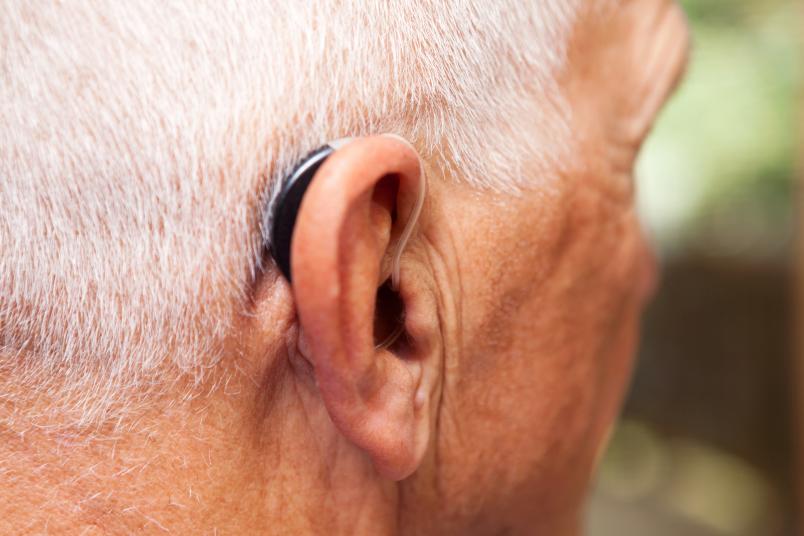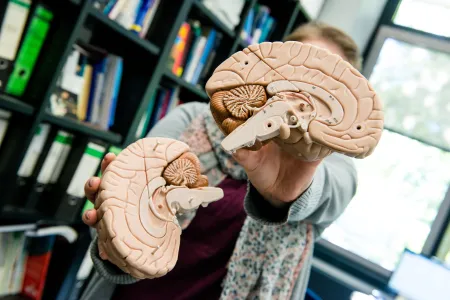
Neuroscience
How hearing loss in old age affects the brain
The brain doesn’t cope well with age-related deafness and memory suffers.
If your hearing deteriorates in old age, the risk of dementia and cognitive decline increases. So far, it hasn’t been clear why. A team of neuroscientists at Ruhr-Universität Bochum (RUB) in Germany examined what happens in the brain when hearing gradually deteriorates: key areas of the brain are reorganized, and this affects memory. The results are published online in the journal “Cerebral Cortex” dated 20 March 2020.
Daniela Beckmann, Mirko Feldmann, Olena Shchyglo and Professor Denise Manahan-Vaughan from the Department of Neurophysiology of the Medical Faculty worked together for the study.
When sensory perception fades
The researchers studied the brain of mice that exhibit hereditary hearing loss, similar to age related hearing loss in humans. The scientists analysed the density of neurotransmitter receptors in the brain that are crucial for memory formation. They also researched the extent to which information storage in the brain’s most important memory organ, the hippocampus, was affected.
Adaptability of the brain suffers
Memory is enabled by a process called synaptic plasticity. In the hippocampus, synaptic plasticity was chronically impaired by progressive hearing loss. The distribution and density of neurotransmitter receptors in sensory and memory regions of the brain also changed constantly. The stronger the hearing impairment, the poorer were both synaptic plasticity and memory ability.
“Our results provide new insights into the putative cause of the relationship between cognitive decline and age-related hearing loss in humans,” said Denise Manahan-Vaughan. “We believe that the constant changes in neurotransmitter receptor expression caused by progressive hearing loss create shifting sands at the level of sensory information processing that prevent the hippocampus from working effectively”, she adds.
